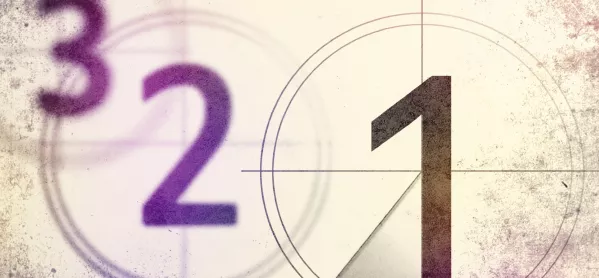As the moment of truth edged nearer, it began. A sense of dread became a spike of anxiety. A spike of anxiety led to a sleepless night. This was all prompted by the knowledge that the day of judgement was nigh and the inescapable feeling that all those hours of work would come down to a few numbers tucked inside an innocuous brown envelope.
GCSE results day is here. In many cases, this description of fear and loathing will be applicable not just to the expectant groups of teenagers, but also to their teachers.
‘Expectation of teacher accountability’
For lots of teachers, GCSE results day is as much about them as it is about their pupils. “How did my class do?” “Did I manage to get Katie a grade 5?” “What does my data look like?” “What will the headteacher think of my results?”
In the days before league tables and accountability, I was one of the 19 per cent in my school who achieved five A-Cs, including maths and English. Now, three times as many pupils at the school attain the equivalent measure. There’s little doubt in my mind that a greater expectation of teacher accountability for results has helped to improve outcomes for pupils at my alma mater.
But I also feel that nationally the accountability expectation has swung too far, with teachers judged too harshly when things go badly.
As a teacher on results day, I’ve congratulated myself as pupils have performed wildly above predicted grades. I’ve also flagellated myself when pupils have performed below expectations. At times, I’ve allowed these results to act as the final chapter in the narrative of my teaching life. But these judgements are skewed by the unreliability of the voice in my head. Not to mention the unreliability of the story itself.
GCSE grades are beyond the teacher’s control
And this is the crux of the issue: a GCSE exam acts as the culmination of many years’ study of a particular subject. What came before me is probably just as important as what I’ve managed to do in the time I’ve had a class. Not all GCSE classes are the same. Some have had long-term supply with non-specialists. Others have been consistently taught by the most experienced and skilled teachers.
On paper, certain pupils should make excellent progress. And where there are long-term trends of specific groups of pupils underperforming, then that is a cause for concern. But some pupils face problems that are beyond their - or your - control, such as physical or mental health issues, family breakdown or bereavement. And others just mess up on the day - mistaking timings, answering the wrong question and so on. In these cases, judging the competency and performance of a teacher becomes very unfair.
So, yes, you need to care about how your pupils do. And it helps if you let them know it. But do so with a healthy dose of pragmatism. We all know that GCSE results don’t define a pupil. Neither should you let them define you.
Mark Roberts is an assistant headteacher at a secondary school in the South West of England





